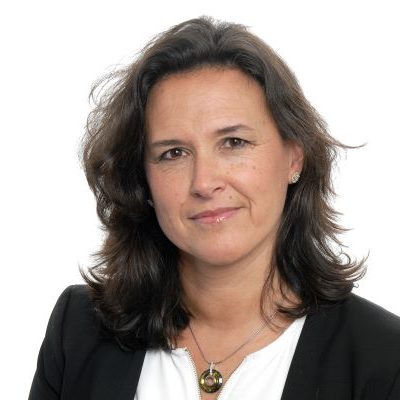At the start of 2022, we welcomed ourselves to the “new normal” – only to embark on an unprecedented course of escalating uncertainty. This year, ours was a volatile and ambiguous world. And in this world, EWC persevered in its work: preparing educators and young people to defend democratic values threatened from within and from without.

Executive Director
2022 was a year that will cast long shadows over the coming ones. Europe has changed irrevocably. Principles that we assumed to be embedded in our societies were shaken to the core. In the violent and fundamental clash of values that exploded in Ukraine in February, everyone was affected.
While it bears no comparison to the impact of war on Ukrainians themselves, many Europeans faced an energy crisis and a humanitarian crisis combined, with millions of refugees fleeing the danger.
Young people are, inherently, in the middle of it all. By equipping them for this central role and the responsibilities it entails, we strengthen democratic resilience in these times of great uncertainty.
Our efforts in this arena are two-pronged: tackling situations where democracy is threated by an external force, such as war, and situations where it’s undermined from within, such as by polarization, discrimination or growing inequality.
Persevered in capacity building in Ukraine
Facing an external threat, we persevered in capacity-building efforts for Ukrainian educators, who now needed our support on a whole new level. We created safe spaces, facilitated inclusion for displaced people, and guided teachers in supporting students (as well as themselves) in these roughest of times. At the same time, we used the lessons learned in our work with refugee students in Greece to build integration bridges around Europe as millions of refugees arrived. We also engaged with democratic diasporas fleeing from authoritarian threats.
Meanwhile, facing internal challenges to democracy, we continued our work on countering hate speech, enhancing inclusion efforts and guarding the shrinking space of civil society in the face of polarization across Europe.
Persisted with Roma inclusion
We persisted with Roma inclusion, enabling teachers to create safe educational spaces for minority students. Preparing future teachers to support young people, we involved both schools and universities in the Western Balkans. We also continued to work on strengthening young people’s competences to take part in democratic processes in Norway. Throughout it all, EWC provided policy advice to national and local authorities based on the expertise of our staff.
As a result, 2022 was both completely novel and firmly rooted in experience. We tackled new challenges in innovative ways, but we also sustained important ongoing projects and pushed fresh initiatives through the pipeline. One such initiative, in Croatia, is dedicated to digital citizenship and media literacy – one of the many aspects of democratic resilience.
Democratic resilience as our compass
There is no manual for navigating times like these. There are, however, strong compasses that offer guidance. One such essential and versatile tool is democratic resilience – the ability to be comfortable in a changing situation, to engage with others, and to advocate for one’s own beliefs.
We have dedicated 2022, one of the most pivotal years we’ve faced, to strengthening this tool and ensuring that young people and educators across Europe are equipped with it.